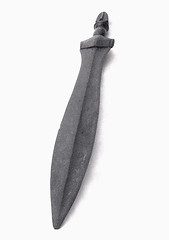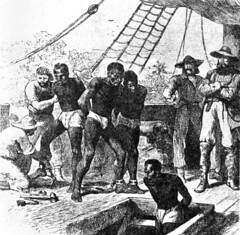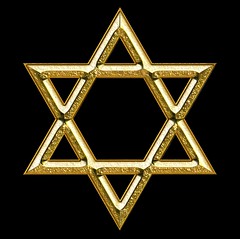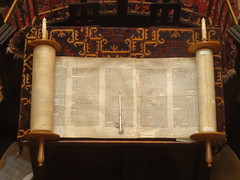| 3827220045 | Civilizations | Formed 5,500 to 5000 years ago, that features an economic system, government, social system or hierarchy, moral belief system, intellectual tradition, and/or a high level of technological aptitude. |  | 0 |
| 3827223369 | State | An area organized into a political unit and ruled by an established government with control over its internal and foreign affairs. |  | 1 |
| 3827223370 | Empire | A state that expands by means of military conquest. |  | 2 |
| 3827224446 | Mesopotamia | Region of great cities (e.g. Ur and Babylon) located between the Tigris and Euphrates Rivers; chronologically the first urban hearth, dating to 3500 BCE, and which was founded in the Fertile Crescent. |  | 3 |
| 3827226827 | Tigris and Euphrates Rivers | The two rivers that surround Mesopotamia; these rivers would flood and provide silt that made the soil fertile. |  | 4 |
| 3827228153 | Sumerians | (3500- 2500 BCE) A group of people who were the first to settle in Mesopotamia. They were the first people to invent the wheel and plow (a tool used for farming). They may have been the first people to discover agriculture and create an irrigation system. |  | 5 |
| 3827228154 | Babylonians | (1900-1600 BCE) Mesopotamian civilization that conquered the Sumerians and famous Hammurabi's Law Code. |  | 6 |
| 3827251944 | Hittites | (1300s and 1200s BCE) The group of people who toppled the Babylonian empire and were responsible for two technological innovations--the war chariots and refinement of iron metallurgy. | 7 | |
| 3827231960 | Assyrians | (911-612 BCE) Mesopotamian civilization that was very warlike and conquered many of its neighbors. |  | 8 |
| 3827235035 | Babylon | The largest and most important city in Mesopotamia. It achieved particular eminence as the capital of the king Hammurabi in the eighteenth century B.C.E. |  | 9 |
| 3827235036 | City-State | A sovereign state comprising a city and its immediate hinterland. | 10 | |
| 3827240502 | Cuneiform | A form of writing developed by the Sumerians using a wedge shaped stylus and clay tablets. |  | 11 |
| 3827240503 | Gilgamesh Epic | Mesopotamian story written in poetic form on a series of twelve tablets with significant parallels to the story of Noah; one of the world's oldest literary works. |  | 12 |
| 3827243843 | Hammurabi's Law Code | It was quite harsh and favored the upper class, but it was in innovation because it set the standard that society should be governed by a set of regulations. |  | 13 |
| 3827245298 | Ziggurats | Temples built by Sumerians to honor the gods and goddesses they worshipped. |  | 14 |
| 3827249594 | Base-60 Number System | System used to measure time and navigational calculations created by the Mesopotamians. | 15 | |
| 3827249595 | Mesopotamian-Indus Trade | Involved boat travel along the Indian Ocean coastline with the Mesopotamians exchanging wool, barley, and copper for gems and cotton. | 16 | |
| 3827255273 | Iron Weapons | Harnessed in battle for the first time by the Hittites, which provided a great advantage to their opponents. |  | 17 |
| 3827268701 | Egypt | This early empire has its home along Africa's longest river, with a detailed form of writing. |  | 18 |
| 3827268702 | Nile River | The river in which early kingdoms in Egypt were centered around. |  | 19 |
| 3827273461 | Old Kingdom | (2575-2134 BCE) Period in ancient Egyptian history characterized by the building of the Great Pyramids at Giza and basic social and political features taking shape. |  | 20 |
| 3827273462 | Middle Kingdom | (2040-1640 BCE) Period of Reunification followed by a period of chaos and disunity; achievements in literature, art and architecture. |  | 21 |
| 3827281134 | New Kingdom | (1532-1070 BCE) Period in ancient Egyptian history characterized by strong pharaohs who conquered an empire that stretched from Nubia in the south, to the Euphrates River in Mesopotamia. |  | 22 |
| 3827282857 | Pharaoh | A king of ancient Egypt, considered a god as well as a political and military leader. |  | 23 |
| 3827285285 | Egyptian-Nubian Trade | Brought gold to Egypt and gave it access to ivory, ebony and exotic animal skins from sub-Saharan Africa, however was very violent due to bad relations between Egypt and Nubia. | 24 | |
| 3827301309 | Egyptian Polytheism | Belief in more than one god centered around the sun god Ra. |  | 25 |
| 3827303070 | Egyptian Book of the Dead | Egyptian's most important religious text, discussed what happened to the soul after death. |  | 26 |
| 3827303071 | Pyramids | Egyptians built these structures to protect the bodies of dead pharaohs, these structures also contained items the pharaohs might need in the afterlife. |  | 27 |
| 3827305515 | Hieroglyphs | Pictures, characters, or symbols standing for words, ideas, or sounds ancient Egyptians used. |  | 28 |
| 3827306925 | Papyrus | A reed that grows along the banks of the Nile River in Egypt. From it was produced a coarse, paperlike writing medium used by the Egyptians and many other peoples in the ancient Mediterranean and Middle East. |  | 29 |
| 3827309107 | 365-Day Calendar | Innovation by the Egyptians that is still used today. |  | 30 |
| 3827310969 | Indus River Civilization | (c. 3300-1700 BCE, flourished 2600-1900 BCE), was an ancient civilization that flourished in the Indus river valleys primarily in what is now Pakistan and western India; major cities were Harappa and Mohenjo-Daro. |  | 31 |
| 3827310970 | Mohenjo-Daro | Largest city of the Indus Valley civilization that was centrally located in the extensive floodplain of the Indus River. Little is known about the political institutions of Indus Valley communities, but the large-scale implies central planning. |  | 32 |
| 3827312339 | Harappa | Site of one of the great cities of the Indus Valley civilization of the third millennium B.C.E. It was located on the northwest frontier of the zone of cultivation, and may have been a center for the acquisition of raw materials. |  | 33 |
| 3827316141 | Huang He (Yellow River) | River Valley civilization in China leading to the start of the Shang Dynasty. |  | 34 |
| 3827316142 | Shang Dynasty | First historically verifiable Chinese dynasty (about 1750-1122 B.C.) which was mostly a farming society ruled by an aristocracy mostly concerned with war. They're best remembered for their art of bronze casting. |  | 35 |
| 3827317592 | Silk | Chinese commodity that China had an unbroken monopoly on for hundred of years. |  | 36 |
| 3827317593 | Pictographs | Characters that stand for objects, utilized by the Chinese. |  | 37 |
| 3827319842 | Zhou Dynasty | (1050-221 BCE) Longest lasting Chinese dynasty that was decentralized and used a feudal system of government, decline started as early as 800 BCE. |  | 38 |
| 3827323230 | Feudalism | A political system in which nobles are granted the use of lands that legally belong to their king, in exchange for their loyalty, military service, and protection of the people who live on the land. | 39 | |
| 3827323231 | Bureaucracy | A large, complex organization composed of appointed officials. | 40 | |
| 3827325432 | Mandate of Heaven | A political theory developed during the Zhou Dynasty of ancient China in which those in power were believed to have the right to rule from divine authority. |  | 41 |
| 3827325433 | Olmecs | (1400 BCE to 500 BCE) earliest known Mesoamerican civilization, lived in rainforests along the Gulf of Mexico, developed calendar and constructed public buildings and temples, carried on trade with other groups. | 42 | |
| 3827339867 | Andean Cultures | Several early civilizations that rose up in the Andes mountains without a river, including the Chavín. |  | 43 |
| 3827339868 | Llama | A hoofed animal indigenous to the Andes Mountains in South America. It was the only domesticated beast of burden in the Americas before the arrival of Europeans. |  | 44 |
| 3827339869 | Quipu | An arrangement of knotted strings on a cord, used by the Inca and other American groups to record numerical information in lieu of writing. |  | 45 |
| 3827342184 | Chavin | The first major urban civilization in South America (900-250 B.C.E.). Its capital was located high in the Andes Mountains of Peru and became politically and economically dominant in a densely populated region. |  | 46 |
| 3827342186 | Nubia | A civilization to the south of Egypt in the Nile Valley, noted for development of an alphabetic writing system and a major ironworking industry by 500 BCE. |  | 47 |
| 3827343505 | Hebrews | Early group of people who emerged in the lands between Mesopotamia and Egypt around 1000 BCE. They developed the Judaism religion. |  | 48 |
| 3827345408 | Monotheism | The belief in one God. |  | 49 |
| 3827349132 | Homeric Epics (Iliad and Odyssey) | An example of early Greek literary works of fiction. |  | 50 |
| 3827349133 | Rome | Founded around 753 BCE, city that would grow rise to one of the most powerful empires in history. |  | 51 |
| 3827355146 | Phoenicians | (1550-300 BCE) A maritime civilization of the Mediterranean that developed extensive trade and communication networks as well as an early alphabetical script. |  | 52 |
| 3827357272 | Alphabet | A set of symbols that represent the sounds of a language, earliest known used by the Phoenicians. |  | 53 |
| 3827357273 | Migrating Pastoralists | Nomads who although did not form civilizations themselves, influenced other groups who did around the world. |  | 54 |
| 3827381908 | Indo-Europeans | A group pf semi-nomadic peoples who, around 2000 BCE, began to migrate from central Asia to India, Europe, and the Middle East. |  | 55 |
| 3827384119 | Aryans | Indo-European group that invaded India in 1500 BCE and laid the foundation for India to develop on. |  | 56 |
| 3827384120 | Bantu | Migrating African peoples who spread language and agricultural knowledge throughout Africa; known for their large migration from the Niger River Basin to all regions throughout Sub-Saharan Africa. |  | 57 |
| 3827385484 | Hyksos | A group of nomadic invaders from southwest Asia who conquered Egypt in 1640 BCE. |  | 58 |
| 3827393031 | Class Distinction | The pattern of divisions that exist within a society on the basis of rank, economic status, etc. | 59 | |
| 3827401024 | Monarchy | A government in which power is in the hands of a single person, usually known as a king or queen. |  | 60 |
| 3827401025 | Aristocracy | The highest class in certain societies, especially those holding hereditary titles or offices. |  | 61 |
| 3827403970 | Oligarchy | A form of government in which the power to rule is held by a small, usually self-appointed elite. |  | 62 |
| 3827403971 | Theocracy | A government controlled by religious leaders or elite. |  | 63 |
| 3827405891 | Social Mobility | Movement of individuals or groups from one position in a society's stratification system to another. | 64 | |
| 3827406798 | Elite Classes | Usually the smallest class in a social hierarchy. | 65 | |
| 3827406799 | Specialization of Labor | The division of labor that aids the development of skills in a particular type of work. | 66 | |
| 3827409220 | Social Stratification | A system by which a society ranks categories of people in a hierarchy. | 67 | |
| 3827410188 | Caste Systems | A system in which people are born into a social standing that they will retain their entire lives. | 68 | |
| 3827414391 | Patriarchal Societies | Male dominant society. |  | 69 |
| 3827410189 | Slavery | A system of enforced servitude in which some people are owned by other people. |  | 70 |
| 3827413045 | Indentured Servitude | A contractual system in which someone sells his or her body (services) for a specified period of time in an arrangement very close to slavery, except that it is voluntary entered into. | 71 | |
| 3827418280 | Serfdom | A system wherein people are bound to the land they live and the landlord and cannot leave during their lifetime. |  | 72 |
| 3827418281 | Prison Labor | Allowed many prisons to be self-sufficient or to help local governments with public works. |  | 73 |
| 3827420024 | Trade | Exchange of goods and services. | 74 | |
| 3827420025 | Barter | To exchange goods or services without the use of money. |  | 75 |
| 3827421057 | Marketplaces | Physical places where goods and services are exchanged. |  | 76 |
| 3827421058 | Overland Transport | A less efficient way of transport when compared to water transport, effectively used caravans to transport goods. | 77 | |
| 3827423382 | Caravans | Groups of people traveling together for safety over long distances. |  | 78 |
| 3827432865 | Mediterranean | This region supported a large network of trade between North African and Middle Eastern Groups using water transport as early as the 4000s BCE. |  | 79 |
| 3827432866 | Monumental Architecture | Large structures, such as pyramid, temples, public spaces, and large statues, that tend to appear wherever powerful leaders emerge; a feature of all agrarian civilizations. |  | 80 |
| 3827442962 | Urban Planning | the area of land use planning which explores several aspects of built and social environments of municipalities and communities. | 81 | |
| 3827534974 | Rig Veda | A collection of 1,017 Sanskrit hymns composed about 1500 BC or earlier; Hinduism's oldest sacred text and one of the first Indo-European texts. |  | 82 |
| 3827534975 | Missionary Activity | People who would often take their religions where ever they went to try and convert others. |  | 83 |
| 3827537224 | Forced Conversion | Forcefully converting people to one's religion without their consent. | 84 | |
| 3827538846 | Vedism | Brought to India by Indo-European invaders around 1500 BCE, a precursor to Hinduism, authors to the Rig Veda. |  | 85 |
| 3827538847 | Caste System | A Hindu social class system that controlled every aspect of daily life, divided Hindus into a social hierarchy. |  | 86 |
| 3827540428 | Brahmins | The priest varna of the caste system, the highest social class a Hindu could achieve. |  | 87 |
| 3827540429 | Karma | The effects of a person's actions that determine his destiny in his next incarnation. |  | 88 |
| 3827541770 | Reincarnation | Hindu and Buddhist belief that souls are reborn into new bodies over and over. |  | 89 |
| 3827541771 | Abraham | Forefather of Judaism, Christianity, and Islam, a Hebrew who entered a covenant with God. |  | 90 |
| 3827548033 | Judaism | The first major monotheistic religion. It is based on a sense of ethnic identity, and its adherents tend to form tight-knit communities wherever they live. |  | 91 |
| 3827548034 | Moses | Led the Hebrews out of Egypt during around 1300 to 1200 BCE (known as the exodus). |  | 92 |
| 3827549793 | Passover | A Jewish festival (traditionally 8 days) celebrating the exodus of the Israelites from Egypt. |  | 93 |
| 3827549794 | Ten Commandments | A set of laws for responsible behavior, which, according to the Bible, were given to Moses by God. |  | 94 |
| 3827549809 | Torah | The first five books of Jewish Scripture, which they believe are by Moses, are called this. |  | 95 |
| 3827552904 | Tanakh | The Hebrew Scripture. |  | 96 |
| 3827555393 | David | King of the Hebrews at his capital in Jerusalem, constructed the First Temple along with his son. |  | 97 |
| 3827555394 | Solomon | Son of David, King of the Hebrews, completed the first temple in Jerusalem. |  | 98 |
| 3827555395 | First Temple | A monumental sanctuary built in Jerusalem by King Solomon in the tenth century BCE to be the religious center for the Israelite god Yahweh. |  | 99 |
| 3827557750 | Zoroastrianism | A religion that developed in early Persia and stressed the fight between the forces of good and the forces of evil and how eventually the forces of good would prevail, used by Darius I to justify his rule. |  | 100 |
| 3827559529 | Avesta | The sacred writings of Zoroastrianism. |  | 101 |
| 3827568661 | Ahura Mazda | In Zoroastrianism, the good god who rules the world. |  | 102 |
Barron AP World History 3 Flashcards
Primary tabs
Need Help?
We hope your visit has been a productive one. If you're having any problems, or would like to give some feedback, we'd love to hear from you.
For general help, questions, and suggestions, try our dedicated support forums.
If you need to contact the Course-Notes.Org web experience team, please use our contact form.
Need Notes?
While we strive to provide the most comprehensive notes for as many high school textbooks as possible, there are certainly going to be some that we miss. Drop us a note and let us know which textbooks you need. Be sure to include which edition of the textbook you are using! If we see enough demand, we'll do whatever we can to get those notes up on the site for you!

